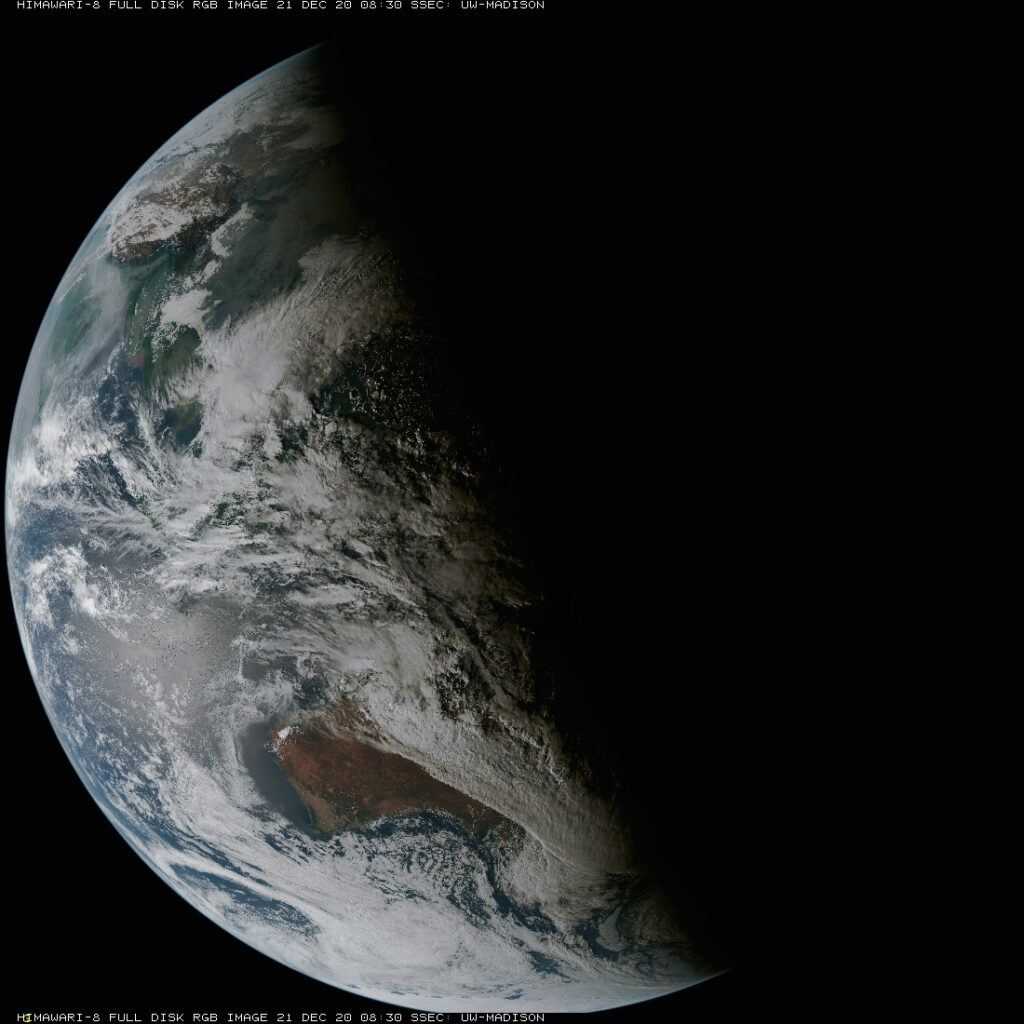The winter solstice — in Latin, sol or “sun” and stice, “come to a stop” — is the day of the year with the fewest hours of daylight in the Northern Hemisphere. This year it occurs at 4:02 a.m. Monday.
As Earth orbits the sun, its axis of rotation is tilted at an angle of 23.5 degrees from its orbital plane. Because Earth’s axis of spin always points in the same direction — toward the North Star — the orientation of Earth’s axis to the sun is always changing as Earth orbits around the sun.
As this orientation changes throughout the year, so does the distribution of sunlight on Earth’s surface at any given latitude. This links the amount of solar energy reaching a location to the time of year and causes some months of the year to always be warmer than others — in other words, the seasons.
On the Northern Hemisphere’s winter solstice, the northern spin axis is pointed away from the sun, and latitudes north of the Arctic Circle — 66.5 degrees North — have 24 hours of darkness.
On this day we have our shortest day and longest night of the year in terms of daylight. But our earliest sunset happens before the December solstice, and our latest sunset occurs after the winter solstice. Why?
The time when the sun reaches its highest point in the sky is called solar noon. The number of daylight hours before solar noon is the same as the amount of light after solar noon.
Solar noon rarely occurs exactly at clock noon. In early December, solar noon comes nearly 10 minutes earlier than clock noon than it does at the winter solstice. In early December, since solar noon comes earlier relative to clock noon than at the winter solstice, by our clocks the time of sunrise comes later on the solstice.
Steve Ackerman and Jonathan Martin, professors in the UW-Madison department of atmospheric and oceanic sciences, are guests on WHA radio (970 AM) at 11:45 a.m. the last Monday of each month.


